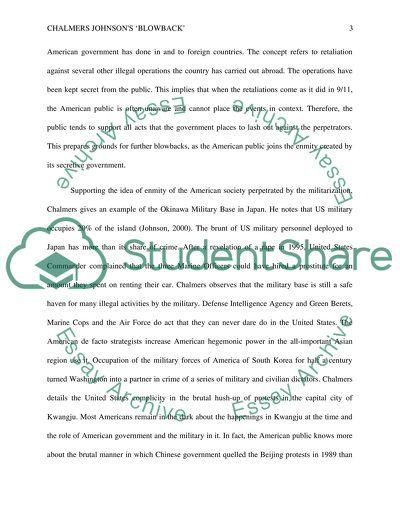Cite this document
(“Blowback by Chalmers Johnson Essay Example | Topics and Well Written Essays - 1500 words”, n.d.)
Retrieved from https://studentshare.org/history/1628986-blowback-by-chalmers-johnson
Retrieved from https://studentshare.org/history/1628986-blowback-by-chalmers-johnson
(Blowback by Chalmers Johnson Essay Example | Topics and Well Written Essays - 1500 Words)
https://studentshare.org/history/1628986-blowback-by-chalmers-johnson.
https://studentshare.org/history/1628986-blowback-by-chalmers-johnson.
“Blowback by Chalmers Johnson Essay Example | Topics and Well Written Essays - 1500 Words”, n.d. https://studentshare.org/history/1628986-blowback-by-chalmers-johnson.


